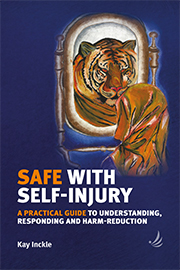This week is Mental Health Awareness Week. Stress is a common issue and most of us have experienced it at some point in our life. Around 12 million adults see their GP about stress-related mental health problems every year. In this post, Adam Sandelson, Head of Counselling at LSE, shares tips to manage and reduce excessive stress.

Stress can affect people in different ways. The term ‘stress’ refers to the response you have when facing circumstances that force you to act, change or adjust in some way to keep things balanced. It is your body’s way of responding to any kind of demand. It can be caused by both good and bad experiences. In the right dose, stress can be healthy or even enjoyable. However, stress can be very damaging when it becomes excessive. It can impact upon your health, happiness, performance, relationships and personal development.
There are a number of techniques that can help you manage stress in your life.
- Learn to manage your time wisely. Plan a daily schedule, and keep breaking up work/study tasks into smaller chunks.
- Always make sure you are setting yourself achievable tasks for the time and energy you have available. You also need to revise your plan during the course of the day. Also, make sure you plan time for breaks, and if you are a student, try not to feel guilty about this, unless you are seriously procrastinating.
- Creating a good work environment is also a great tool for stress management. People have different study habits. While some need a completely quiet room free from interruptions, others actually study better listening to soft music in the background. Some people like to move around. If you’re a member of staff, see what you can do!
- Try to do things that you enjoy and make you feel good, and reward yourself regularly for your successes, however small they may seem. This can help you achieve a more positive mindset, which is good for overall wellbeing. Some people like to write down three things they have achieved at the end of each day.
- Try using simple relaxation techniques like mindfulness, deep breathing, progressive muscle relaxation or meditation. You can find guidance on these on the student counselling service website, otherwise hit Google.
- Get out of the office or study environment for some part of the working day. You need fresh air, it helps you think!
- Lastly, take care of your body and mind. Everyone needs to get some form of physical exercise, even if it’s just walking for 20 minutes to the nearest tube stop twice a day. If you’re struggling with falling sleep, make sure you remove yourself from your laptop and phone at least half an hour before going to bed; some gentle stretching can also help. If you’re taking naps in the day, restrict these to 20 minutes at a time, otherwise you’ll wake up from deep sleep feeling as if you’ve been hit by a jet plane. Around 6–8 hours of sleep each night is enough for most people.
There’s further advice on the student counselling service website, including links to a wide range of self-help resources. We’re open to see students throughout the year, and there’s a separate staff counselling service which also offers confidential assistance. Good luck!
 Adam Sandelson is the Head of Counselling at LSE, where he has worked for the past nine years; previously he worked in the NHS for many years.
Adam Sandelson is the Head of Counselling at LSE, where he has worked for the past nine years; previously he worked in the NHS for many years.



